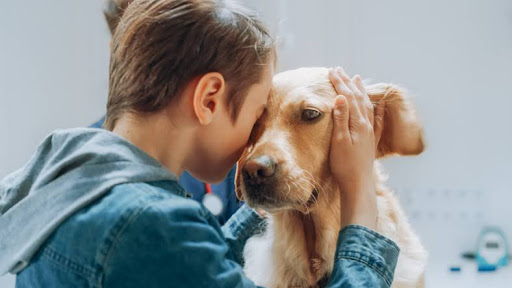
The death of a pet represents a child's initial encounter with mortality which typically results in profound emotional distress. Pets represent more than just animals because they serve as loyal companions who hold the status of best friends and family members. When a pet passes away children commonly experience confusion and heartbreak along with uncertainty about how to handle their mourning. The emotional support from parents, caregivers or trusted adults plays a crucial role in assisting children during challenging periods.
Understand the Depth of Their Grief
The demise of a pet creates emotional trauma for children that is comparable to losing a loved relative or friend. Avoid minimising their grief with statements such as “It was just a dog” or “We can get another one” because these remarks can invalidate their feelings and create misunderstanding.
Instead, acknowledge their loss with empathy. By acknowledging their feelings with statements like “I know you loved Bella very much” and “It’s okay to feel sad—it’s a big loss,” you help children express their grief openly.
Use Honest, Age-Appropriate Language
Children need clear, age-appropriate explanations about death. Do not use terms such as “went to sleep” or “ran away” because they may cause confusion or fear in children. A child might ask themselves when their pet will return home or wake up from sleep. Gently inform them that their pet has passed away which means their body has stopped working and they will not return.
Anticipate questions and respond to them with straightforward honesty. When faced with spiritual or existential queries you cannot answer, it is acceptable to respond with “I don’t know.”
Encourage Expression of Emotions
Children don't always possess the vocabulary to convey their feelings which means they need various emotional expression outlets. Children may express their emotions through different creative tasks like picture drawing or letter writing to their pet and scrapbook creation or by sharing personal stories. Through creative activities children can find a way to process their grief while preserving their pet’s memory.
Children should be allowed to express their emotions through crying or talking, while they may also show anger. Grief manifests through various expressions and occurs at different stages. Tell them every emotion they experience during mourning is valid because there's no single correct way to grieve.
Create a Ritual or Memorial
Rituals can help bring closure and comfort. Organise a small memorial or ceremony as a meaningful goodbye for your child. A child may choose to light a candle or plant a tree to honour their pet and might also select a special place to display their pet’s photo. Through these acts, children gain opportunities to pay tribute to their pets and start to heal.
Maintain Patience While Looking Out for Indications of Difficulty
Grief doesn’t follow a set timeline. While certain children recover quickly from grief, others may need weeks or months to adjust. Be patient and keep communication open. When your child experiences intense sadness that lasts over time and affects their daily activities, it can be beneficial to consult a child therapist or grief counsellor for support.
Model Healthy Grieving
Kids frequently depend on adults to learn appropriate emotional responses. Children need to see their caregivers express emotions so they understand that grief is natural. Showing your grief demonstrates to them that sadness is normal and reassures them that heartbreak is acceptable. You can say, “I miss her too. She played an irreplaceable role in our family."
Moving Forward with Compassion
Your child will gradually heal from their loss yet retain memories of their treasured pet which remains acceptable. Maintaining open discussions about the pet and exchanging joyful memories while focusing on shared affection keeps their bond alive.
When a child loses a pet they experience deep pain which becomes a teaching moment about love and life's natural cycles along with developing empathy. Your support and understanding will enable them to recover and become stronger.



























